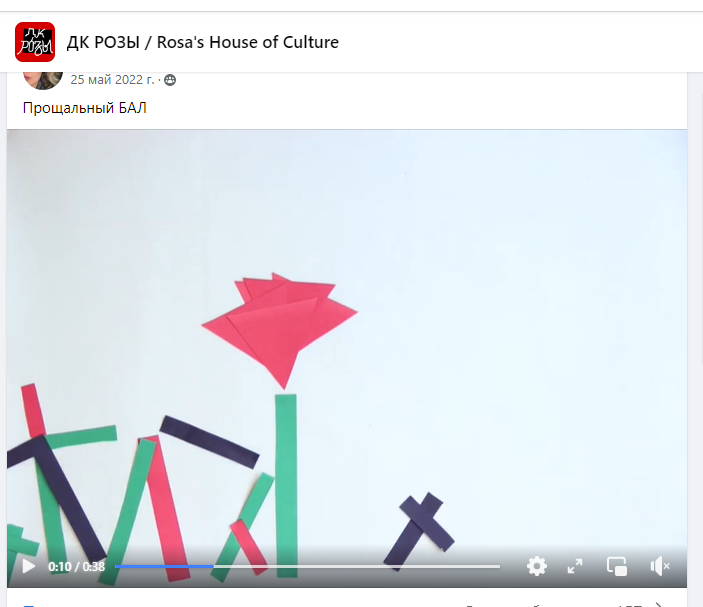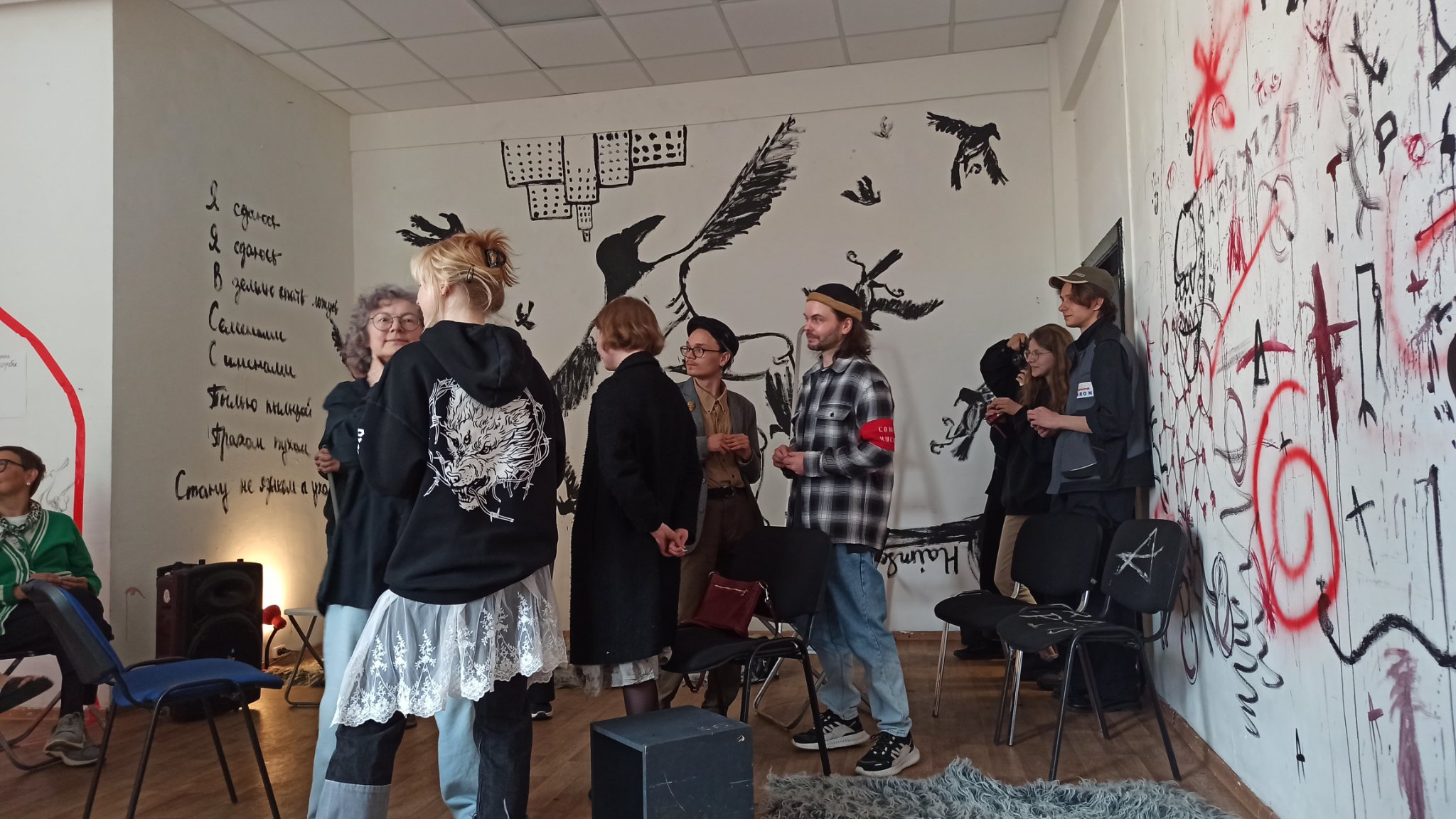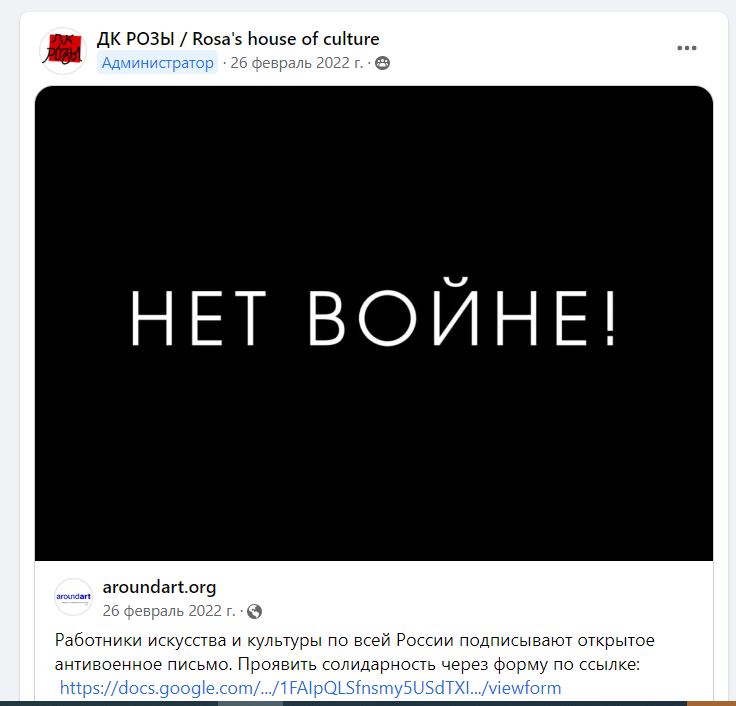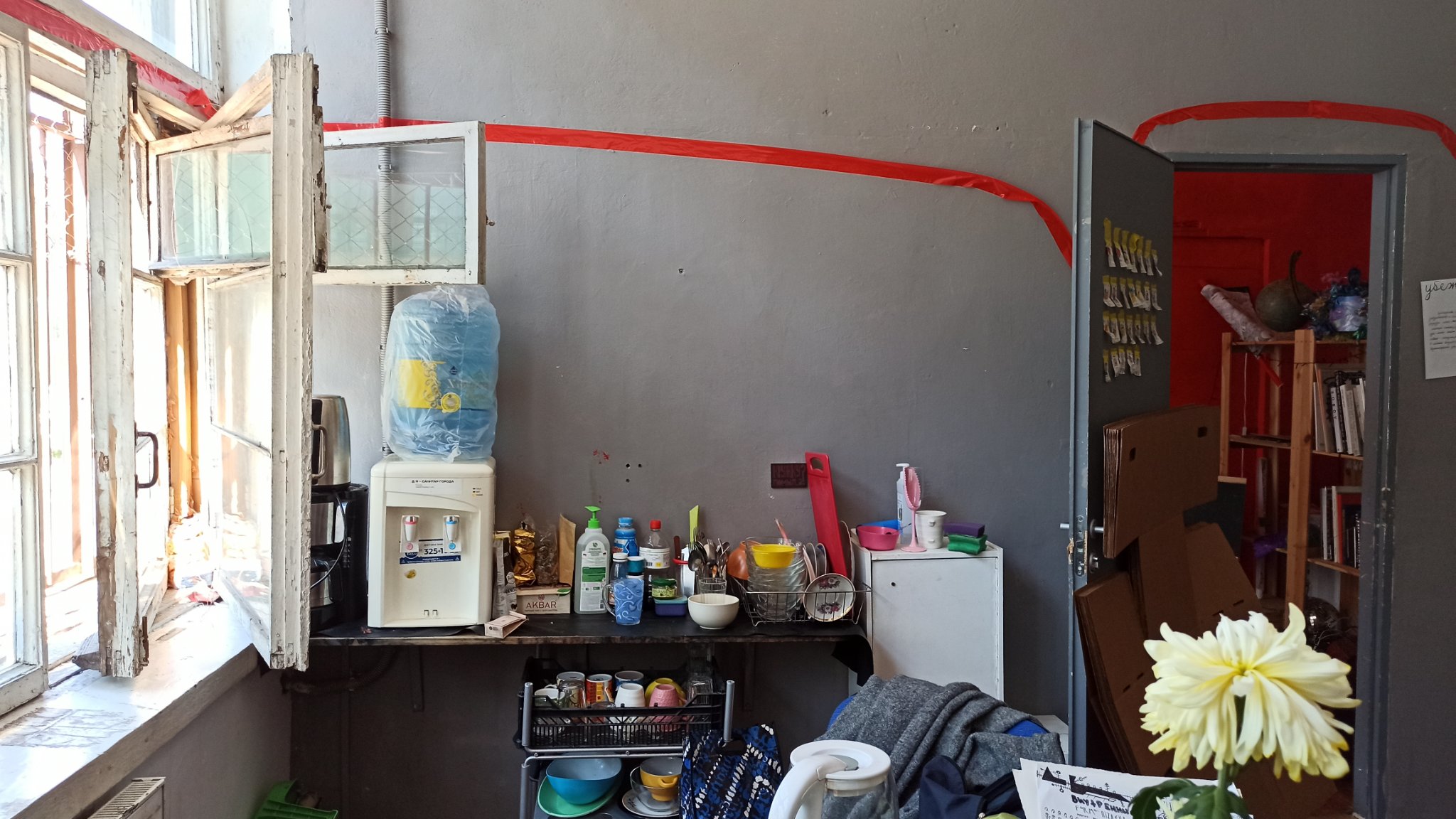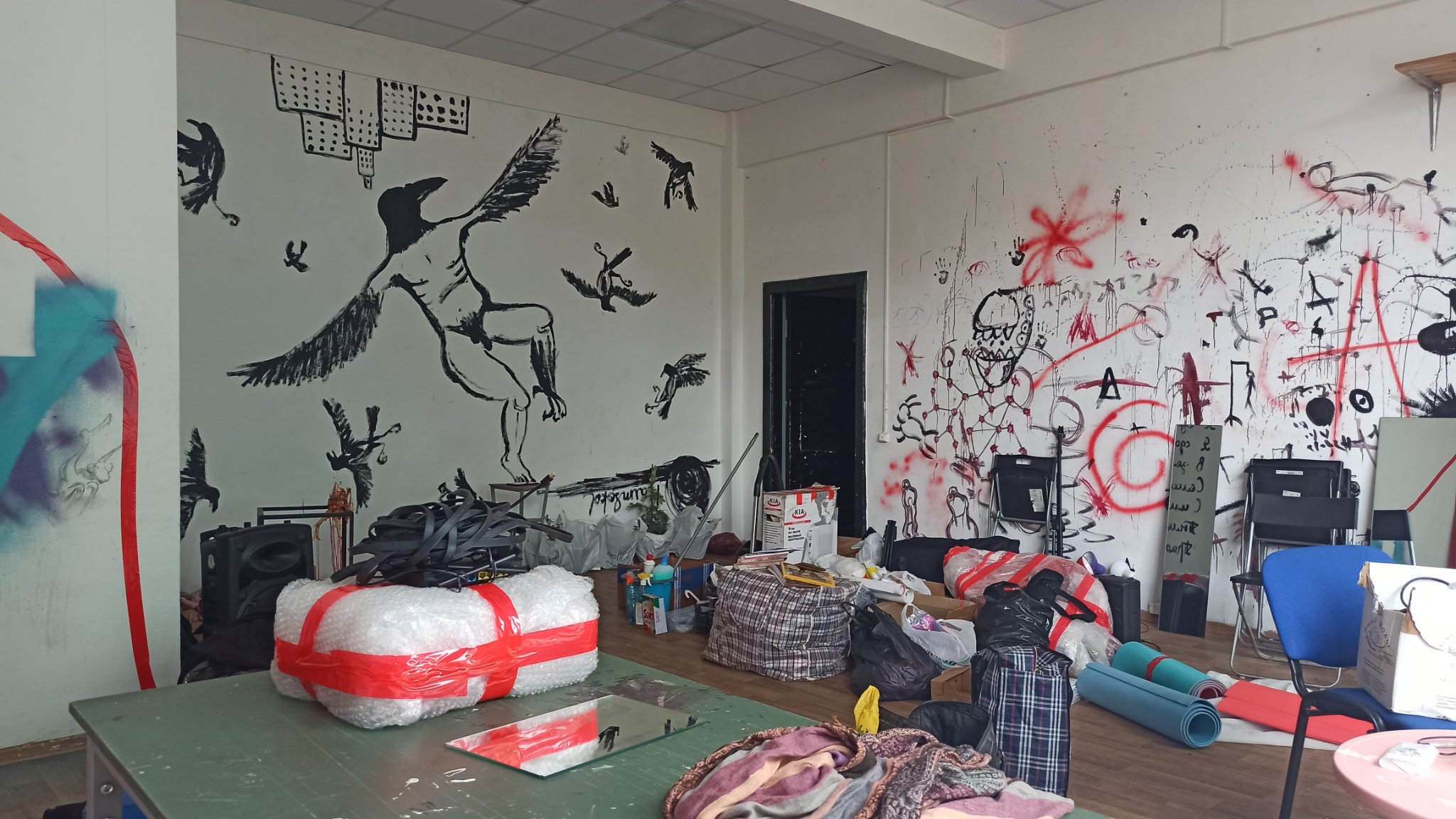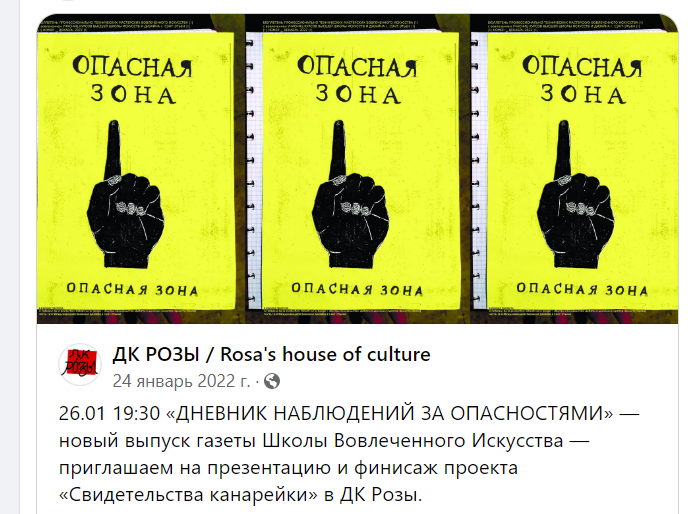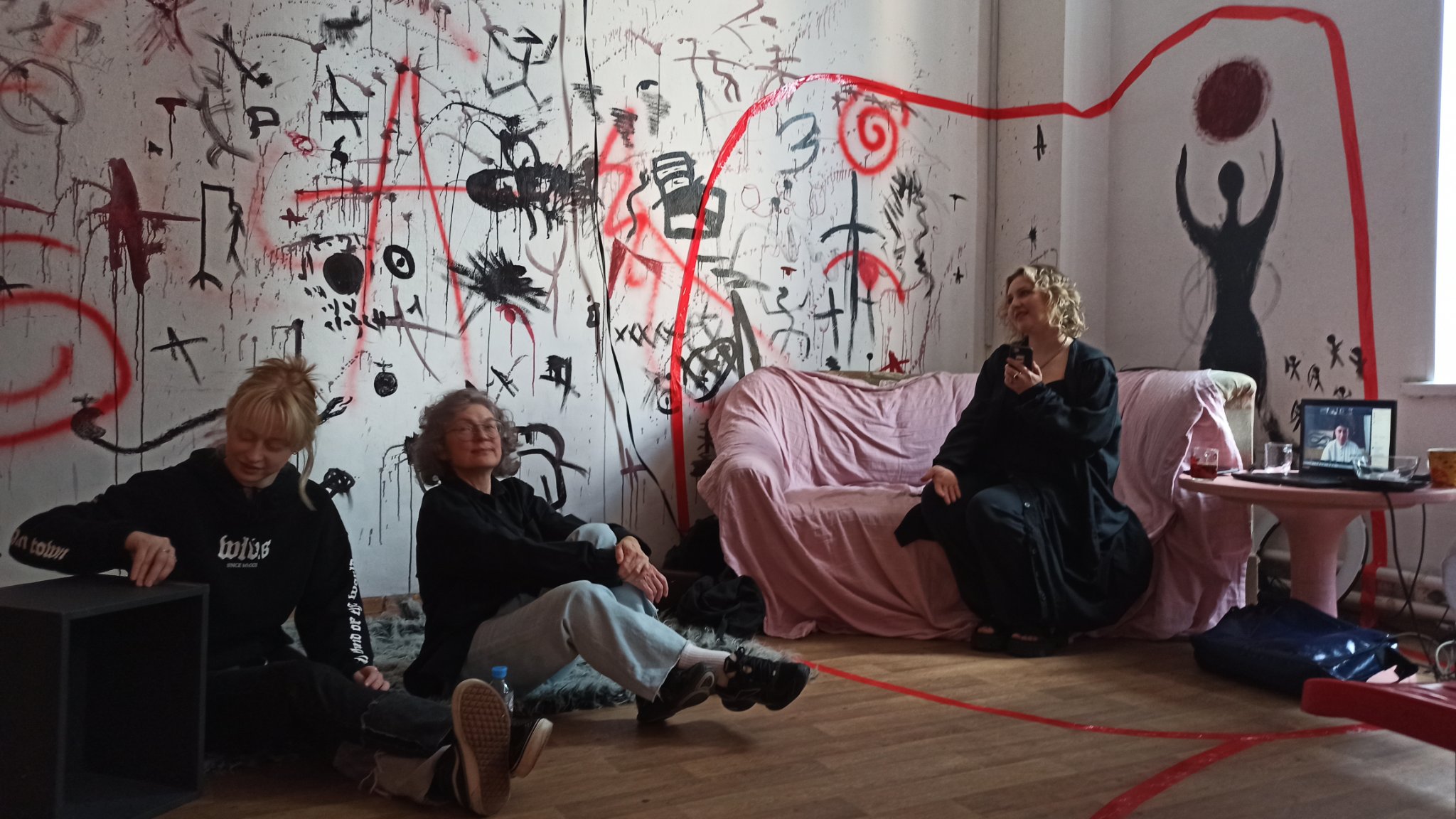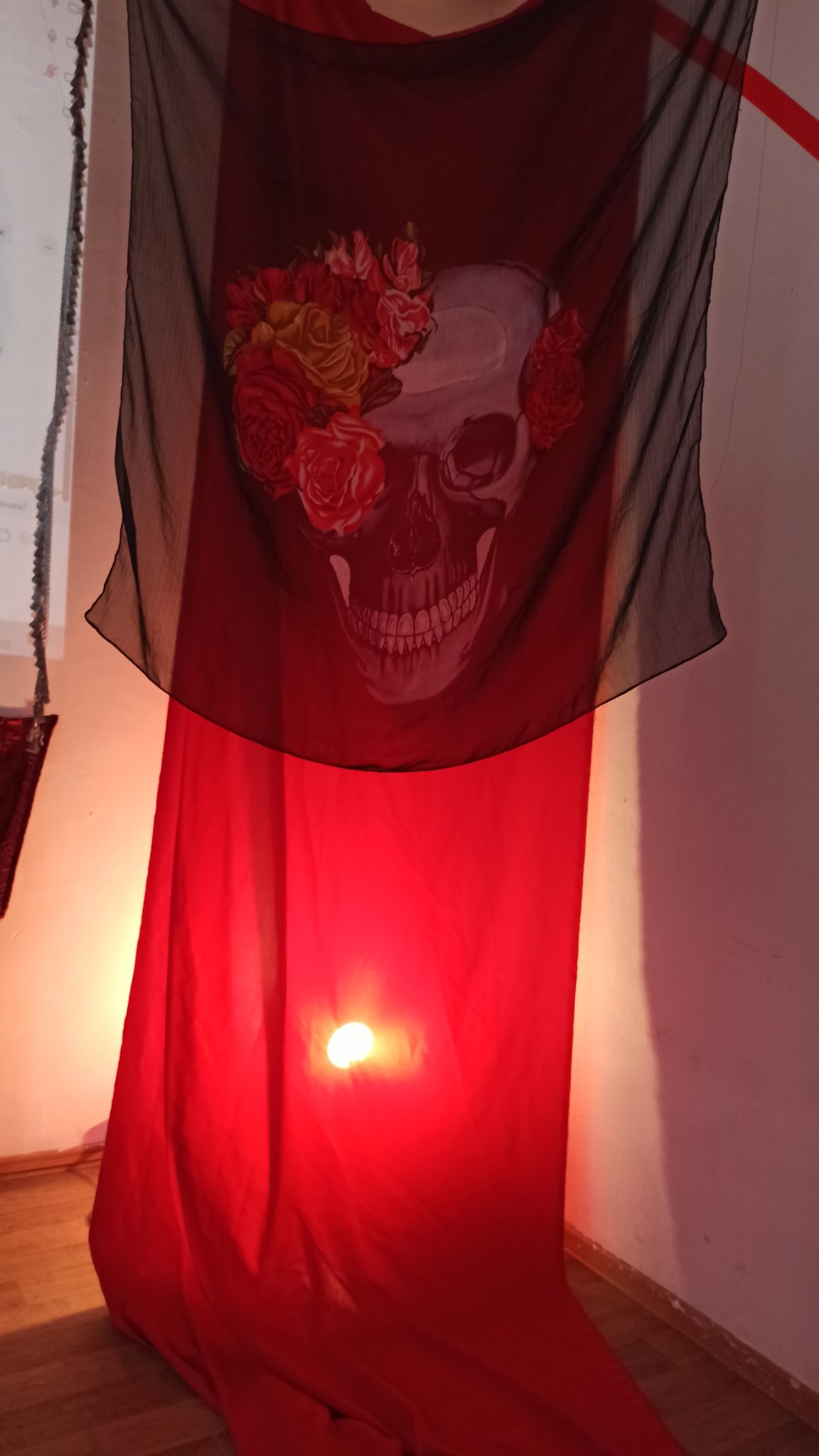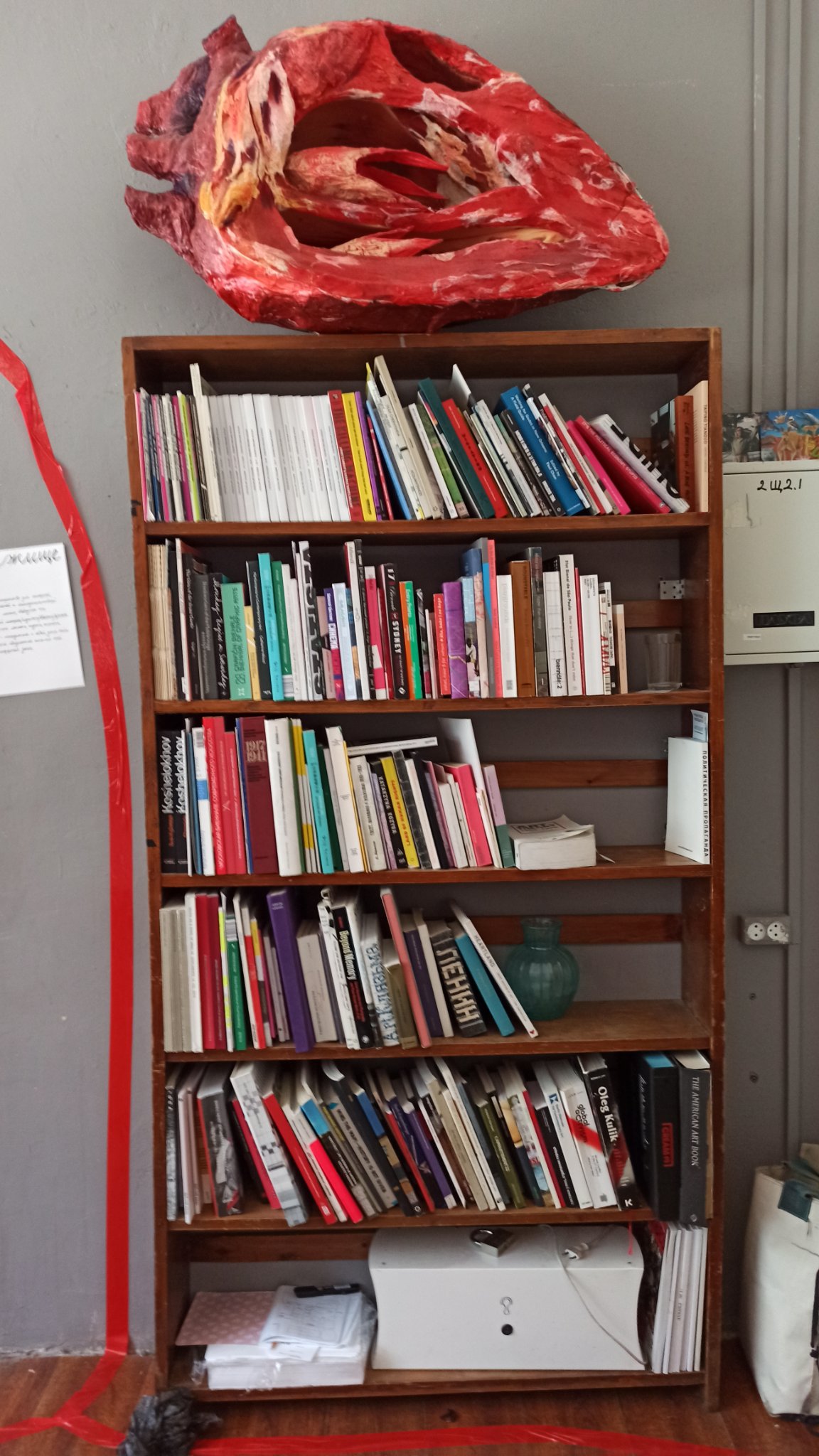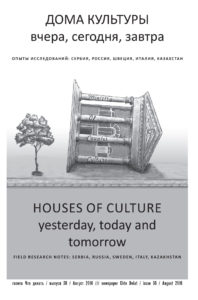Rosa’s House of Culture (ДК РОЗЫ – Дом Культуры Розы) – is an initiative of collective Chto Delat and it opens its door on 1st of May in 2015
The Rosa’s House of Culture is about constructing counter-public at the moment of closure of publicness.
This project is questioning the legacy of Soviet tradition of Houses of Culture which was a well-spread state supported infrastructure for leisure and educational activities of people in Soviet Union. What can we learn from that experiences and how can we imagine a new model of House of Culture in composing a counter-public sphere?
How this places could “function as spaces of withdrawal and re-groupment and/or as training grounds for agitational activities directed toward wider publics” (Nancy Fraser).
For realizing this research and praxis we have decided to establish an experiment in operating a space where members of different marginalized leftist collectives invent and maintain their activities, which in turn permit them to shape and defend their identities, interests, and needs and how this different groups could come together and mutually support each other at a dark times.
The core of the activities of our “D.K. Rosy” (Rosa’s House of Culture) are different initiatives which we welcome from different field of activism and alternative educational initiatives such as an grass roots unions of IT workers, the union structure of educational workers (профсоюз «Учитель»), some self-organized feminist theater groups, sewing educational co-operative “Shvemy”, School of Engaged Art, Liberatian robototechnics, Queer Tango – just to mention a few different existing and temporary workshops which took place in Roza’s House of Culture. The art and activist Zetkin library is also located here with its unique collection of books and ephemera
The main function of this space is to bring these diverse groups into dialogue which could lead into building of a new composition of solidarity and engagement into common mutually supporting activities.
D.K. Rosy has started its activity with the support and in the framework of the international project Draft (https://www.draftprojects.info/home.html) – initiated by Institute for Contemporary Art Research, Zurich University of the Arts ZHdK
Since 2017 the activity of RHoC is supported from Chto Delat e.V redistributing the grant from Foundation for Art Initiaves
visit and join our group at FB at https://www.facebook.com/groups/800787473370867/?fref=ts
The traces the genealogy of Soviet Houses of Culture
This research was realized with generous support of Garage Museum, Field Research Programm, Moscow
Еxploring Houses of Culture as spaces where different emancipatory encounters with art and culture happened, the project aslo involves investigating how these experiences can be translated into current day counterculture practices.
The Soviet Houses of Culture were popular institutions in the Soviet Union, created as public spaces to engage workers in various life-building programs. Their genealogy can be traced back to nineteenth-century Italy, when similar spaces formed out of workers’ desire for literacy. In their theoretical studies, Chto Delat trace another important parallel between the Houses of Culture and early avant-garde experiments such as Alexander Rodchenko’s Worker’s Club; institutions such as social centers; and contemporary museums’ public and educational programs. At the center of the current investigation is a reappraisal of the role these institutions have played and an examination of how the activities and training courses have been key for several generations of independent artists, including some of the members of Chto Delat. Another important aspect of the project is to look at how the Houses of Culture have contributed to the emergence and development of self-organized initiatives, such as DK Rozy (Rosa’s House of Culture) in St. Petersburg, which was founded by the group as a practical outlet for their theoretical propositions.
Faithful to their belief in the power of collective work, Chto Delat have selected a group of fourteen young artists, many of them graduates of the group’s School of Engaged Art. Each artist selected and researched a variety of Houses of Culture in towns and cities across the former Soviet Union, operating from the early twentieth century to the present day: St. Petersburg, Arkhangelsk, Korkino (Chelyabinsk Region), Kaliningrad, Omsk, Novosibirsk, Kara-Zhygach (formerly Ala-Too, near Bishkek, Kyrgyzstan), Togliatti, Shelota (Vologda Region), Jõhvi (Estonia), Minsk (Belarus), and Gorodnya (Tver Region). The choice of the House of Culture was informed by each artist’s personal interests and experience. Their stories and discoveries show how the remains of Soviet infrastructure have influenced the development of the post-Soviet intelligentsia. An entire section is also dedicated to three successful artist-run initiatives, in Moscow (DK Delai kulturu); Novosibirsk (kakoe na dne?…); and St. Petersburg (DK Rozy). The emergence of such projects today points to a growing need for new public spaces where the audience can interact with art in a different, more open-ended way and be involved in its production, with such initiatives providing a counterpoint to the current consumerist approach to culture.
See the documentation of the project here
https://garagemca.org/en/materials/1512?id=106
and here
http://schoolengagedart.org/en/initiatives/soviet-houses-of-culture-research/
dk-rosy_musa1 from chto delat on Vimeo.
Here you can see a short trailer with the history of Rosa’s House of Culture at the Artmuza space – till the moment we have been kicked out of there after the owner of the space got a signal from FSB – see the whole history here and visit our DK at new place –
Since September 24th 2015 ROSA’s House of Culture is forced to stop its public activities in the ArtMuza space. The reason: as we were told in the directorate of ArtMusa, they had received “the signal from the FSB,” and because they are not going to risk their bussiness, they unilaterally break the lease. Naturally, this is against the law. Comments: Our House of Culture is an educational and cultural center, which aims at the formation of critical thinking among artists, cultural workers and activists interested in the analysis and the participation in the processes of change in society. An important part of the public program of the House of Culture have become topical social projects, raising important issues such as the round table of doctors and patients of the closing emergency department on Vasilyevsky Island. We did not do anything illegal – we did not distribute forbidden literature, did not carry out violence and did not call for it, and there are no regulations on the recognition of our activities as extremist or even undesirable. We believe that the termination of the annual lease agreement from the Art Musa, is an act of self-censorship that permeates our entire society. We decided not to challenge it in court as management cluster has all the capabilities to legally paralyze our public works, which has already started to happen, when the guards of Art Musa allowed themselves rude and incorrect behavior in relation to the project participants and our guests. Therefore, instead of litigation with ArtMuza we prefer to mobilize our resources to find a new space, and are confident that ROSA’s House of Culture will open in October in a new place with an even more intense and important program.








